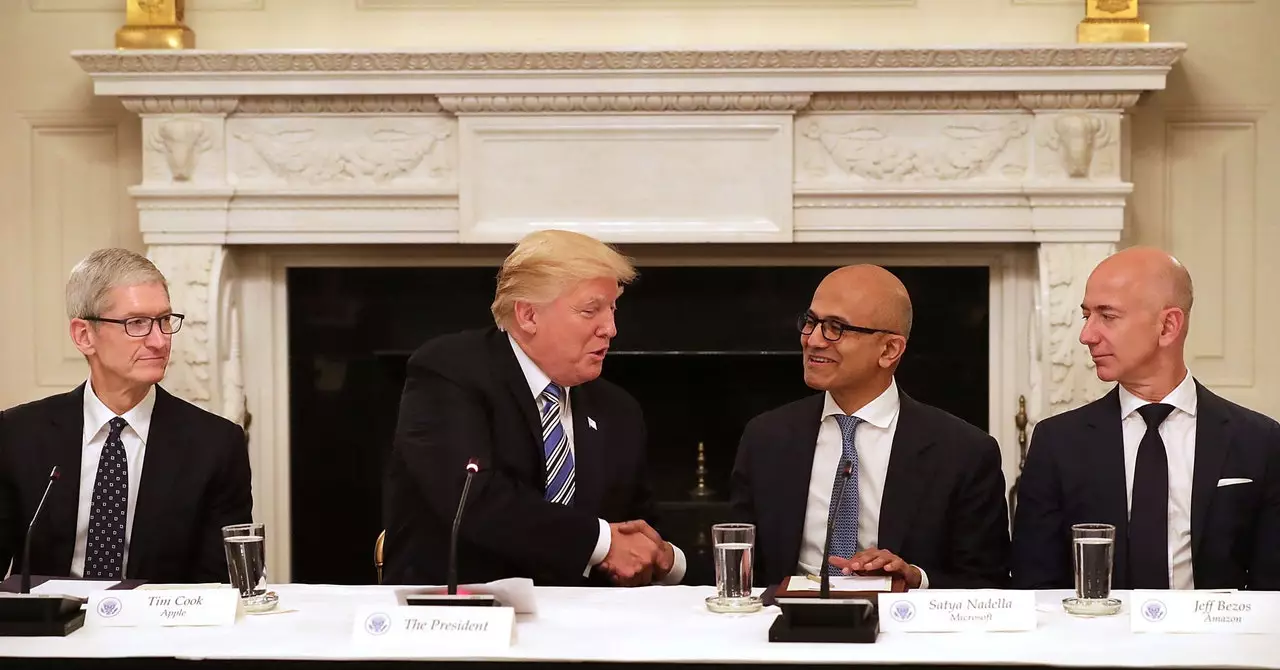As the political climate intensifies in the lead-up to the next presidential election, former President Donald Trump has made bold promises that could reshape the regulatory framework for technology companies and the cryptocurrency industry. His commitment to fire Gary Gensler, the current chair of the Securities and Exchange Commission (SEC), has drawn significant applause from supporters, particularly in the crypto community. Under the Biden administration, Gensler’s SEC has pursued numerous legal actions against cryptocurrency businesses, which some view as an attack on innovation and growth in this emerging sector.
Trump’s plans to alleviate perceived constraints on cryptocurrency are reminiscent of the landscape in which Bitcoin thrived. His promise to commute the sentence of Ross Ulbricht, the creator of Silk Road, further underscores his intentions to cater to crypto enthusiasts. Silk Road, notorious for facilitating the exchange of illicit goods and services, was also pivotal in introducing Bitcoin to a broader audience. Critics argue that Ulbricht’s life imprisonment is an egregious punishment that raises questions about justice and proportional responses to non-violent crimes. This pledge from Trump to consider clemency signals his alignment with a segment of voters who feel marginalized by existing regulatory frameworks.
Turning to the tech sector, Trump’s stance on antitrust enforcement presents a multi-faceted dilemma. The fate of Lina Khan, the youngest chair of the Federal Trade Commission (FTC), has emerged as a litmus test for the administration’s relationship with big tech firms. Khan has stirred considerable controversy regarding her aggressive approach to antitrust issues and corporate accountability. Companies like Google, Amazon, Meta, and Microsoft have found themselves under scrutiny during her tenure, and critics of her policies view her as an impediment to technological progress.
Notably, figures in the tech industry, including notable Trump supporters like Elon Musk, have been vocal about their discontent regarding Khan’s policies. Musk claimed she should be fired, reflecting a broader skepticism toward regulatory frameworks that many in Silicon Valley believe stifle innovation and competitive practices. Analyst Dan Ives articulated a prevailing sentiment: Khan’s potential ousting might lead to a more favorable environment for tech mergers and acquisitions, which could be promising for the sector’s future growth.
Interestingly, Trump’s own comments regarding Khan hint at a dual approach: while he might seek to overhaul the FTC’s leadership, he also hinted at a desire to regulate companies like Google to enhance fairness. This approach adds complexity to the overarching narrative as it intertwines notions of freedom of speech and corporate responsibility. Meanwhile, Vance’s supportive remarks about Khan reveal an internal division within the Republican party over the treatment of big tech and its role in public discourse.
The notion that a new Trump administration would continue to pursue antitrust actions against large tech companies, albeit in a more strategic manner, raises questions about accountability moving forward. Adam Kovacevich, an expert in technology policy, suggests that while Trump might not abandon existing cases, he likely seeks to leverage these lawsuits for favorable negotiations concerning content moderation and platform governance.
Ultimately, the intersection of cryptocurrency regulation and antitrust enforcement under a potential Trump presidency underscores the broader ideological battle over technology’s role in society. With the stakes higher than ever in terms of economic stability and individual freedoms, how these policies will be shaped involves navigating between regulatory oversight and the increasingly vocal demands of constituents who wish for more freedom in both financial and digital spheres.
As discussions around these themes unfold, observers will closely watch how Trump’s proposed policy shifts affect not only the technology sector and cryptocurrency markets but also the larger narrative of American innovation and regulatory practice in the years to come. The path forward is fraught with potential pitfalls, but the desire for reform and accountability in the tech sector remains a significant aspect of the American political dialogue.


Leave a Reply